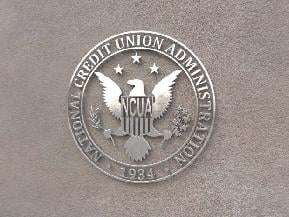To see who could drum up the most referrals for investment services, a couple years ago, a credit union leased a very expensive, high-end car as an incentive for employees.When CUNA Brokerage Services Inc. caught wind of it, the firm quickly zoomed in to alert the credit union that offering such a big-ticket lure did not abide by strict referral program regulations.“It was an education process for them,” said Tim Halevan, vice president and chief compliance officer at CUNA Brokerage, adding the credit union clearly was not aware that it had fallen out of compliance with its referral program prize.Halevan said this instance is the exception as credit unions tend to know the rules especially when it comes to what member service representatives can say to members who come in with queries about brokerage and investment services. There are specific guidelines from FINRA on referral programs that involve registered representatives and financial institutions. However, credit unions and state insurance have an additional set of regulations they must follow. While CUNA Brokerage allows referral programs, its policy is that all contests, campaigns and promotional materials have to be approved by its home office compliance department before they can be used or implemented.“We emphasize the need for credit unions and broker-dealers to partner together on referral programs so that they can share education and to make sure everyone is within the guidelines so that no one gets hurt or stung down the road,” Halevan said.For instance, gifts or prizes are fixtures but FINRA, state insurance and credit union laws are clear about what is allowed. The incentives should be nominal, according to CUNA Brokerage. In most states, an acceptable guideline would be $5 to $10 for each referral. A prize totaling $25 to $50 for the top two to three credit union employees who obtain the most referrals during the referral program would also be acceptable in most states. The prizes or gifts can not be funded by or paid for by a mutual fund company, the financial services program or entities like CUNA Brokerage or another CUNA Mutual Group affiliate. Generally, the financial institution picks up the cost.CUNA Brokerage emphasized that referral compensation can never be related to or based on sales. Halevan said this piece is “extremely important” because members must have a transparent environment where they can get their financial needs addressed and met.“None of the regulators want to force people to sit in a seat only if they have the money to facilitate a sale. We want to be as transparent as we can with members. The concept is to send members to a qualified representative to discuss investments that are alternatives to what credit unions are offering,” Halevan explained.What’s allowed? Member service representatives may hand out general information and refer members to financial service representatives, but the advertising of specific products or product types may not be distributed from the teller windows, drive-thrus or other deposit-taking areas of the credit unions. Products like annuities, insurance or investments can not be recommended by credit union staff unless they are registered and licensed to do so.Halevan said what a member service representative can or can not talk about with members is probably the top inquiry CUNA Brokerage receives from credit unions. According to the company, staff is prohibited from describing the features of any insurance or annuity product, and they may not answer questions from members regarding the content of the advertisement.“If they are run correctly, they can be successful,” Halevan said on referral programs. “We encourage credit unions to use them.”Just as the referral process has certain guidelines, the SEC is reminding broker-dealers that it is watching for conflicts of interest when it comes to how the firms are recruiting representatives. In an Aug. 31 letter, SEC Chairman Mary Schapiro said recent press articles on the way broker-dealers are “vigorously” courting potential employees including with large, up-front bonuses and enhanced commissions, prompted the agency to respond.“In light of these reports, I want to remind broker-dealer firms and their CEOs of the significant supervisory responsibilities you have under the federal securities laws to oversee broker-dealer activities, particularly with respect to sales practices,” Schapiro wrote.Some enhanced compensation arrangements could induce brokers to engage in conduct that is not in investors’ best interest and reminds CEOs that they have an obligation to police for such conflicts, Schapiro said. In addition, the letter reminded CEOs that, as their firms grow, their supervisory and compliance infrastructures should retain sufficient size and capacity.If a registered representative is aware that he or she will receive enhanced compensation for hitting increased commission targets, that person could be motivated to churn customer accounts, recommend unsuitable investment products or otherwise engage in activity that generates commission revenue but is not in the investor’s interest, the SEC said.Halevan said the concept of upfront bonuses as recruitment tools has been going on for years especially among the big wirehouses. But, “it’s always a good reminder.”“Schapiro was exactly right. She’s asking us to do something we already do on a daily basis,” Halevan pointed out, adding CUNA Brokerage prides itself on its caliber of reps. “Unfortunately, bad people do bad things no matter what the regulations say.”–[email protected]
 Search
Search














 Copyright © 2024 ALM Global, LLC. All Rights Reserved.
Copyright © 2024 ALM Global, LLC. All Rights Reserved.